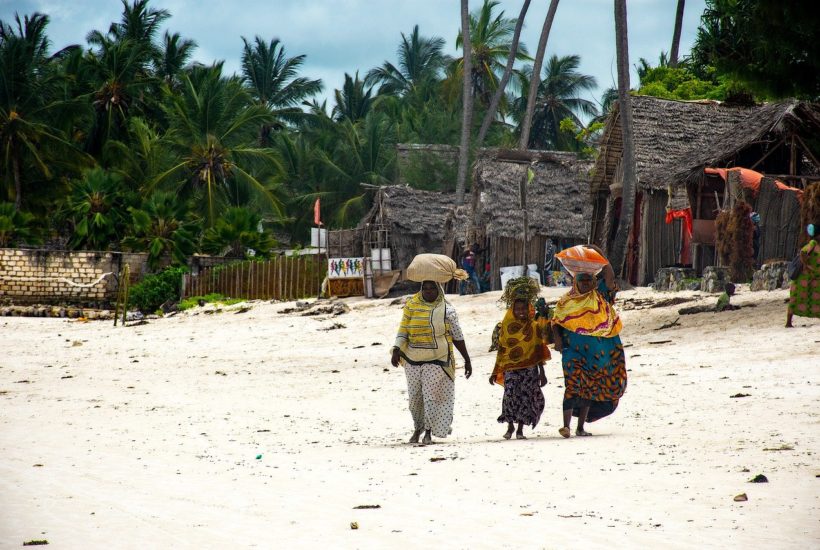Africa
The economic impact of COVID-19 in Africa is significant
A new survey conducted in four African countries on the COVID-19 pandemic shows that the pandemic has a significant impact on food security (measured by the fact that one or more household members go 24 hours without food) and household income, and that women are apprehensive about access to health care. General awareness of the virus and its symptoms is high, as is the perception of risk of infection.

Performance Monitoring for Action (PMA), a family planning and sexual and reproductive health data collection project funded by the Bill & Melinda Gates Foundation, conducted a survey in the Democratic Republic of Congo (DRC) (Kinshasa Province), Kenya, Burkina Faso, and Nigeria (Lagos and Kano States) on levels of knowledge about COVID-19 and the implications for women’s health and economic prospects.
The results of the survey show significant impacts of COVID-19 on food security and income. In all geographic regions, three-quarters or more of women reported that their household had lost at least some income since the beginning of the COVID-19 restrictions. Total loss of household income ranged from 16 percent in Burkina Faso to 62 percent in Kinshasa, DRC.
“In Burkina Faso, COVID-19 has had a negative impact on care-seeking among the women we interviewed, but more importantly, their households have experienced increased food insecurity. For example, 70% of women from households that used to face food insecurity said it had increased more compared to the period before the imposition of COVID-19 restrictions. It should be noted that the results of this PMA-COVID-19 study served as a basis for discussion at the National Forum on COVID-19 held on September 22nd, 2020, under the chairmanship of the Prime Minister, with the theme “Remobilizing the entire nation to intensify the response to COVID-19 and learning to live with it,” said Dr. Georges GUIELLA, Principal Investigator of PMA-Burkina Faso.
Read more about the impact of COVID-19 on the economy of African countries and find other economic news with the Born2Invest mobile app.
Awareness of the pandemic is high according to the study
Food security has been severe and pervasive since the beginning of COVID-19 restrictions and more prevalent than before the restrictions. Thirty percent of women in Kenya reported that at least one member of their household has been food insecure since the imposition of COVID-19 restrictions, and 72% report that food insecurity is more common now than before the restrictions began.
General awareness of the virus and its symptoms is high, as is the perception of risk of infection. Although more than 90% of women from all walks of life take preventive measures, many have difficulty distancing themselves from society. The most common reasons for this difficulty are the demands of daily life (shopping in an open market, commuting to work, and visiting friends and family members who often live in intergenerational families).
Between 20-50% of women in the countries studied had to visit a health care facility during the mobility restrictions associated with COVID-19, but more than 20% reported fearing the virus in the health care facility.
About PMA: The Performance Monitoring for Action (PMA) project is fueling a data revolution to guide family planning programs. Data is essential to inform and guide policy and program changes around the world.
High-quality data-collected frequently, quickly, and held locally-help decision makers understand what works and what does not work, enabling more sensitive and responsive decisions to be made in response to changing needs.
The COVID-19 surveys were implemented by partner institutions: Institut Supérieur des Sciences de la Population (ISSP) in Burkina Faso; Ecole de Santé Publique de Kinshasa, University of Kinshasa in Kinshasa, DRC; International Centre for Reproductive Health Kenya (ICRH-K) in Kenya; and Centre for Research, Evaluation Resources and Development (CRERD) in Nigeria.
Overall leadership and technical support for PMA is provided by the Bill & Melinda Gates Institute for Population and Reproductive Health at the Johns Hopkins Bloomberg School of Public Health, and by Jhpiego in collaboration with national partners in each project country. PMA is funded by the Bill & Melinda Gates Foundation.
__
(Featured image by aga2rk via Pixabay)
DISCLAIMER: This article was written by a third party contributor and does not reflect the opinion of Born2Invest, its management, staff or its associates. Please review our disclaimer for more information.
This article may include forward-looking statements. These forward-looking statements generally are identified by the words “believe,” “project,” “estimate,” “become,” “plan,” “will,” and similar expressions. These forward-looking statements involve known and unknown risks as well as uncertainties, including those discussed in the following cautionary statements and elsewhere in this article and on this site. Although the Company may believe that its expectations are based on reasonable assumptions, the actual results that the Company may achieve may differ materially from any forward-looking statements, which reflect the opinions of the management of the Company only as of the date hereof. Additionally, please make sure to read these important disclosures.
First published in lefaso.net, a third-party contributor translated and adapted the article from the original. In case of discrepancy, the original will prevail.
Although we made reasonable efforts to provide accurate translations, some parts may be incorrect. Born2Invest assumes no responsibility for errors, omissions or ambiguities in the translations provided on this website. Any person or entity relying on translated content does so at their own risk. Born2Invest is not responsible for losses caused by such reliance on the accuracy or reliability of translated information. If you wish to report an error or inaccuracy in the translation, we encourage you to contact us.

-

 Cannabis2 weeks ago
Cannabis2 weeks agoKONOPEX Expo 2026: Celebrating Europe’s New Era of Legal Cannabis
-

 Biotech3 days ago
Biotech3 days agoVolatile Outlook for Enlivex Therapeutics as Investors Await Clinical Catalysts
-

 Impact Investing1 week ago
Impact Investing1 week agoInter IKEA Launches Electric Truck Fleet to Decarbonize Heavy-Duty Logistics in Italy
-

 Markets5 days ago
Markets5 days agoCotton Market Weakens Amid Demand Concerns and Bearish Trends
























